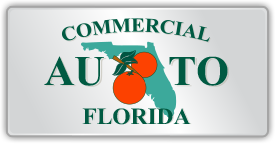| Actual Cash Value (ACV) |
Actual cash value is the replacement cost value at the time of the loss, less the value of its physical depreciation. |
| Aggregate Limit |
The aggregate limit is the maximum amount the insurer will pay on an annual basis for liability coverage. Often, the limit is referred to as an annual aggregate limit, which is just the total amount your insurer will pay in a single year. |
| At-Fault |
The aggregate limit is the maximum amount the insurer will pay on an annual basis for liability coverage. Often, the limit is referred to as an annual aggregate limit, which is just the total amount your insurer will pay in a single year. |
| Carrier |
The company providing its business commercial auto insurance is known as the carrier. |
| Certificate of Insurance |
This certificate of insurance is a document that details the types of policies an insured has, along with the amount of coverage and date range the policy has been in effect. This is often used by commercial contractors to prove to clients that they as well as their employees have insurance coverage. |
| Commercial Liability Insurance |
Commercial Liability Insurance is a combination of three separate types of coverage which will in turn provide maximum protection in the event of an accident. This coverage includes general liability, medical payments, and personal injury liability. |
| Declarations Page |
The declaration page includes details and descriptions of the vehicle insured, name and address of the insured, effective dates in which business became insured, the amount of insurance coverage, and premiums. |
| Deductible |
The deductible amount is always agreed upon prior to issuing a policy. It is the amount of loss the insured has to pay out of pocket and is responsible for in the event of a loss. |
| Endorsements |
Endorsements modify your policy by changing and improving specific coverage. Endorsements can change, modify, add, decrease, or even eliminate coverage. |
| Exclusions |
Provisions that deny coverage for specific events. Exclusions remove coverage for a number of potential reasons, events, persons, property, or locations. |
| Financial Responsibility Law |
This law mandates drivers and owners of the vehicles to have enough money on hand to compensate individuals who they injure. Liability insurance is the most common form of coverage to satisfy the financial responsibility requirement. |
| Legal Liability |
Legal liability is taking responsibility as imposed by the law, as opposed to liability coming from a contract or other agreement. |
| Medical Coverage |
This coverage reimburses the driver and/or passenger(s) for medical and funeral expenses caused by an accident. Regardless of whether the accident was their fault or not, it also will cover the medical expenses of the other party(s) involved in the accident. |
| No-Fault Insurance |
This coverage, for employees in a no-fault state determined by the law, states that regardless of who is responsible for the accident, coverage for medical expenses, lost wages, and other accident-related expenses will be covered. |
| Personal Injury Protection |
This coverage is part of a no-fault policy if the employee lives in a no-fault state. Personal injury protection pays for medical treatment, lost wages, and medical costs related to the accident regardless of who caused the accident. |
| Third Party |
This refers to an individual not involved in the insurance agreement who may have become involved in an accident indirectly or by impacting it. |
| Total Loss |
Total loss is a condition in which the vehicle or other property is damaged so greatly that repair expenses would top the vehicle or property. |

